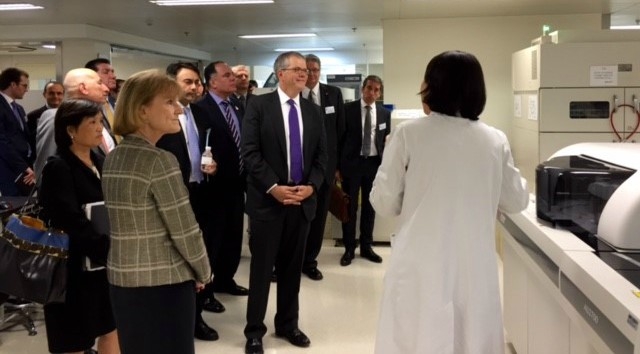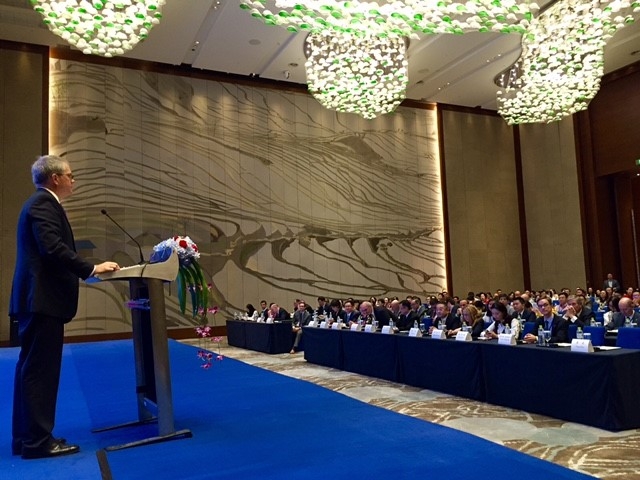Oct252016
Posted at 8:54 AM
Last week, U.S. Deputy Secretary of Commerce Bruce Andrews traveled to Beijing and Chongqing, China, for a health care business development mission. Deputy Secretary Andrews led the mission, and was joined by Acting Deputy Secretary of the U.S. Department of Health and Human Services (HHS) Mary Wakefield and representatives from 12 U.S. companies. As the United States and China continue to expand universal health care insurance coverage, parallel challenges have risen on how to ensure fast and easy access to good health care. During his visit, the Deputy Secretary affirmed U.S. health care companies are well-positioned to help advance China’s health care reform agenda.
Beijing was the first stop of the Deputy Secretary’s trade mission. There, he delivered remarks at the China Hospital Association (CHA) Luncheon and China Chamber of Commerce for Imports and Exports of Medicines & Health Products Luncheon. While in Beijing, Deputy Secretary emphasized that the two main goals of the trip were to learn, and to develop new opportunities for collaboration between the two countries’ health care sectors.
Deputy Secretary Andrews and the delegation toured the Peking Union Medical College Hospital. During the tour, the Deputy Secretary observed the cutting-edge U.S. medical technology being used in the hospital, and discussed the recent changes in China’s health care system with doctors and hospital officials.
During meetings with Chinese government officials, Deputy Secretary Andrews pushed for the elimination of trade barriers that discriminate against foreign companies. He argued that by eliminating trade barriers, high-quality products and services will reach Chinese patients faster, and improve both the U.S. and Chinese economies. Deputy Secretary Andrews outlined how wholly foreign owned private hospitals and health insurance companies are not currently permitted in China. By opening those doors to trade, Deputy Secretary Andrews outlined the benefits for U.S. companies and Chinese citizens.
For the second half of the trip, the Deputy Secretary traveled to Chongqing, China to meet with business leaders, stakeholders, and health care industry representatives. Joined by a delegation of 11 U.S. companies, the Deputy Secretary outlined the opportunities for Chinese hospitals to work with the U.S. health care industry.
Chongqing boasts a population of nearly 30 million people with a growing middle class. China’s rapidly expanding population will require access to adequate primary care. The Deputy Secretary reaffirmed the U.S.’s commitment to strengthening the Chinese health care reform agenda by connecting hospitals with cutting-edge U.S. health care technology firms.
For example, the current product registration and approval process time in China is four to six years for pharmaceuticals and three to four years for higher risk medical devices. That is drastically longer than the U.S. Food and Drug Administration 10-month standard review time for new drugs and as low as 30 days to a year review time for medical devices. By cutting that time down, U.S. companies could export their products and services at a much quicker rate, and Chinese patients could receive the care they need.
Deputy Secretary Andrews stressed the need for ongoing collaboration between the two governments. China’s total public and private healthcare expenditures reached $640 billion in 2015 and is expected to nearly double to $1.1 trillion by 2020. The Chinese government’s increased investment represents a significant chance for U.S. firms to export their products and services to an expanding market.



